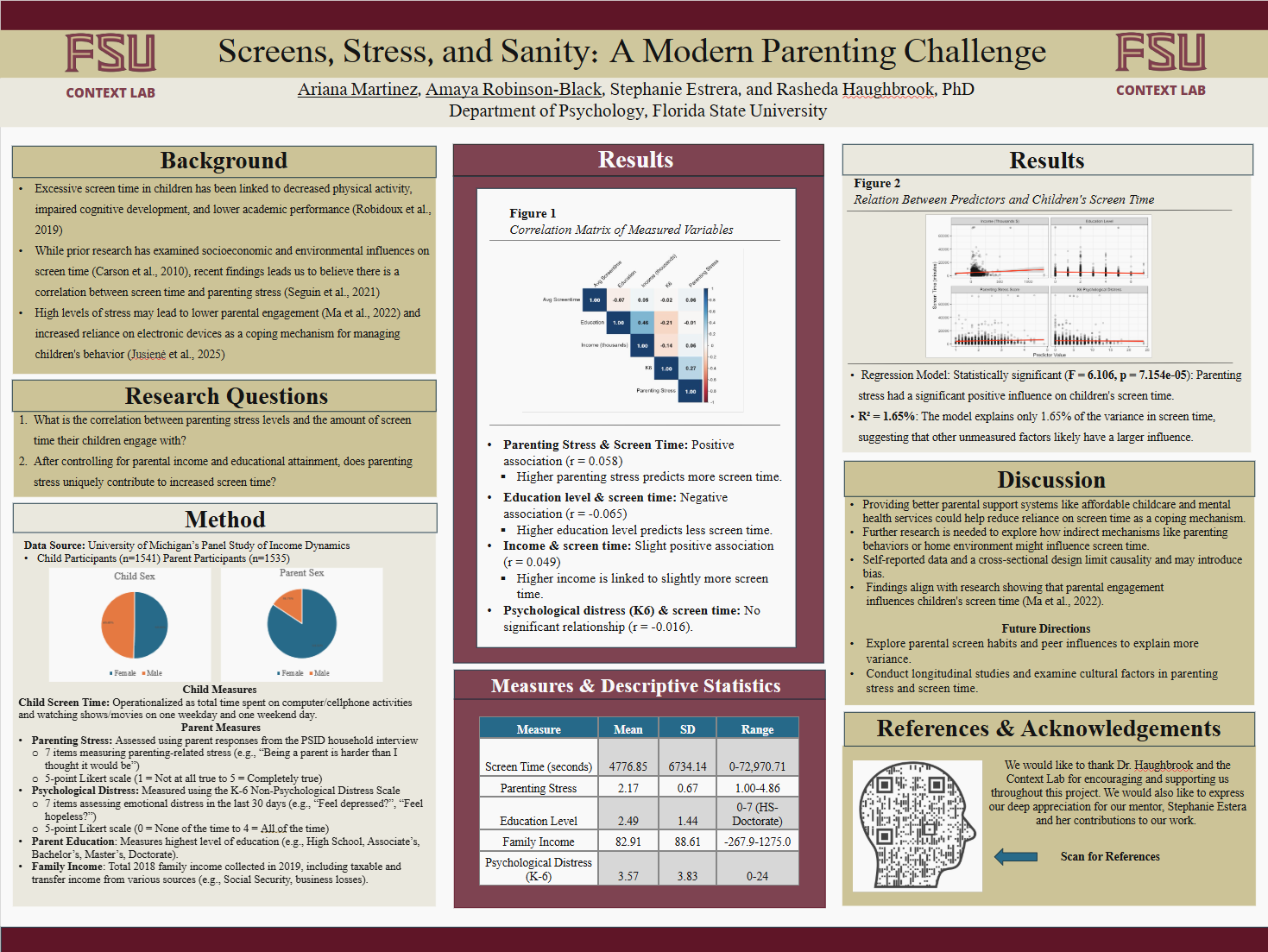Research Symposium
25th annual Undergraduate Research Symposium, April 1, 2025
Ariana Martinez Poster Session 2: 10:45 am - 11:45 am/ Poster #22
BIO
Hi, my name is Ariana Martinez, and I am a Senior majoring in Psychology and Human Development & Family Sciences at FSU. I currently serve as the Curriculum Chair for Sisters2Service, a community service and mentoring organization. I also volunteer in Dr. Haughbrook's Context Lab within the Psychology Department, where we explore genetic and environmental influences on mental health and academic achievement, with a focus on racial disparities. My research interests center on the impact of childhood trauma and poverty on children’s academic performance and socioemotional development, as well as the factors that mediate these relationships. After graduating this year, I plan to pursue a Master’s in Licensed Mental Health Counseling or a Ph.D. in Developmental Psychology.
Screens, Stress, and Sanity: A Modern Parenting Challenge
Authors: Ariana Martinez , Stephanie EsteraStudent Major: Psychology, Human Services & Family Service
Mentor: Stephanie Estera
Mentor's Department: Developmental Psychology Mentor's College: College of Arts & Sciences Co-Presenters: Amaya Robinson
Abstract
Parental stress can shape parenting behaviors and engagement with children. Heightened parenting stress is associated with increased reliance on negative parenting practices, such as harsh discipline and emotional withdrawal, which can contribute to less parental engagement and, potentially, increased child screen exposure. Research suggests that excessive screen time in youth is linked to developmental concerns, including reduced physical activity, impaired cognitive outcomes, and lower academic performance. The purpose of this study is to explore the association between parenting stress and child screen time engagement. This study will examine this relationship using data from the Panel Study of Income Dynamics (PSID), the longest ongoing longitudinal dataset in the U.S., which has tracked 9,200 families and 84,000 individuals as of 2021. The PSID focuses on diverse low-income families, observing poverty-related issues and updating family data annually. For this research, we will use the 2014 Child Development Supplement (CDS), which follows children aged 0-17 born after 1997. The CDS includes data on parenting stress and screen time engagement at two time points. We will examine the association between parenting stress and screen time usage at Time 1 and assess whether parental stress at Time 1 predicts increased screen use at Time 2, controlling for parental income and educational attainment. Findings from this study will provide insight into how parenting stress influences children’s digital media habits. If significant associations are found, results may inform interventions aimed at reducing parental stress to promote healthier screen time behaviors and improved developmental outcomes for children.
Keywords: Parental Stress, Children's Screen Time, Income, Education

